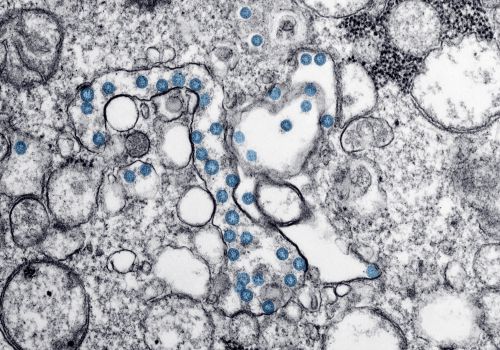Dear Atlantic Council Community,
Precisely one year ago, the Atlantic Council shifted to remote work as the COVID-19 pandemic sent shock waves through communities around the world.
Thanks to your commitment, resilience, collegiality, creativity, and plain hard work you have made the Atlantic Council stronger than at any time in our 60-year history. That is true substantively, digitally, financially and, most of all, as measured by the quality, diversity, and dynamism of our people and culture.
Later in this message, I will reflect more about what we have learned and how that should influence our path forward. However, the primary purpose is to share our timeline and plans for our return to the physical office.
We are extending our current remote work period and are planning for a grand reopening of our Washington headquarters on September 7, 2021. This will replace our previously scheduled May return date. It is our hope and intention that this is the last time we will move this goalpost.
More significantly, we will return to the office as a different Atlantic Council, shaped and strengthened by the experiences of the past year.
Operationally, we also need time to prepare our offices for a physical return. We will be upgrading event spaces for enhanced production capabilities, we will reconfigure meeting rooms for optimized collaboration, and we will sharpen our plans for how to use our current workspaces.
We also want to use this extended work period to shift our thinking about how we use our office space in the coming months. We will want to build upon our gains in the digital space, we will want to add new innovations to those we have introduced, and we will want to internalize and capture the positive ways in which we have changed.
From now until September, we will continue to follow local guidance for COVID-19 protocols and workplace capacities. Staff who feel comfortable are encouraged to use the office more frequently to work, collaborate with colleagues, or host approved in-person meetings or small hybrid events. I have already begun to work at the office more frequently.
Reflecting on the past year, many of you have experienced personal and professional challenges that have been compounded by the many stresses brought on by COVID-19. Some of you have experienced unthinkable loss, and the challenges are not over. It is difficult to believe that the United States alone has suffered well more than 500,000 COVID-19-related deaths.
Given that context, it is all the more remarkable that you have worked together with such decency and in such a collaborative, positive and generous spirit toward each other. Above all, thank you for that. Nothing is more important to our culture than mutual respect and common cause.
Because of you, we have turned this year of disruption into a remarkable period of innovation across the organization. Indeed, our adaptation to this virtual world has helped us reimagine our management and operations model for the future.
- Our digital reach for our content doubled in 2020. Our convenings, almost entirely virtual, totaled 2 million participants and viewers across all platforms.
- We launched Atlantic Council Front Page, a new virtual event format where we convened virtually with guests such as: NATO Secretary General Jens Stoltenberg, Malala Yousafzai, His Royal Highness the Prince Of Wales, and IMF Managing Director Kristalina Georgieva. Across all our events we hosted almost 100 sitting presidents, prime ministers, and cabinet ministers from Asia and Africa to Europe and the Americas. We learnt early that we could bring people to our events virtually with greater ease than in the office, and we could broadcast them to tens or hundreds of thousands of people.
- We launched two new centers that made us more global in reach and ambition: the GeoTech Center and the GeoEconomics Center. And we launched new Initiatives for the Caribbean, on Forward Defense, empowerME for the Middle East, our New American Engagement Initiative, and our Global Strategy Initiative.
As we envision who we want to be and how we want to return to our office, we want to retain the best of the Atlantic Council, while also striving for a flatter organization with more digital capabilities, a more streamlined decision-making process, and a future-oriented ethos that recognizes a return to business-as-usual would be the riskiest path forward.
I am confident that we are well prepared for this next phase of our operations, thanks to our diverse, nimble, entrepreneurial, and solutions-oriented team.
Our culture is one of intellectual entrepreneurship and independence, collegiality (as we must work as a team), optimism (as we must believe we can shape the world, together), expertise (you need to know your field to influence it), solutions-orientation (you must know how to get things done), and diversity (which makes us stronger).
If anything, our physical distance has underscored the irreplaceable value of these core, cultural qualities, which shine through no matter where we find ourselves geographically. Our partners remain attracted to us because they are attracted both to our values-based mission and our operational effectiveness.
For all of the reasons outlined above, we believe our timeline will allow us to return to the office most intentionally and effectively. Until then, continue to take care of yourselves, your families, and one another.
I look forward to seeing you all, physically or digitally.
Onward and Upward,

Frederick Kempe
President and CEO
Atlantic Council
For more information about the Atlantic Council’s coronavirus programming, please sign up to our Coronavirus Alert and make sure to visit the section of our website dedicated to our coronavirus coverage. For information on how you can support the Atlantic Council’s work, please click here. If you have any questions, please email us at coronavirus@atlanticcouncil.org.
Subscribe to ‘The future is here: A guide to the post-COVID-19 world’
Sign up for a weekly roundup of top expert insights and international news about how coronavirus is reshaping international affairs.

